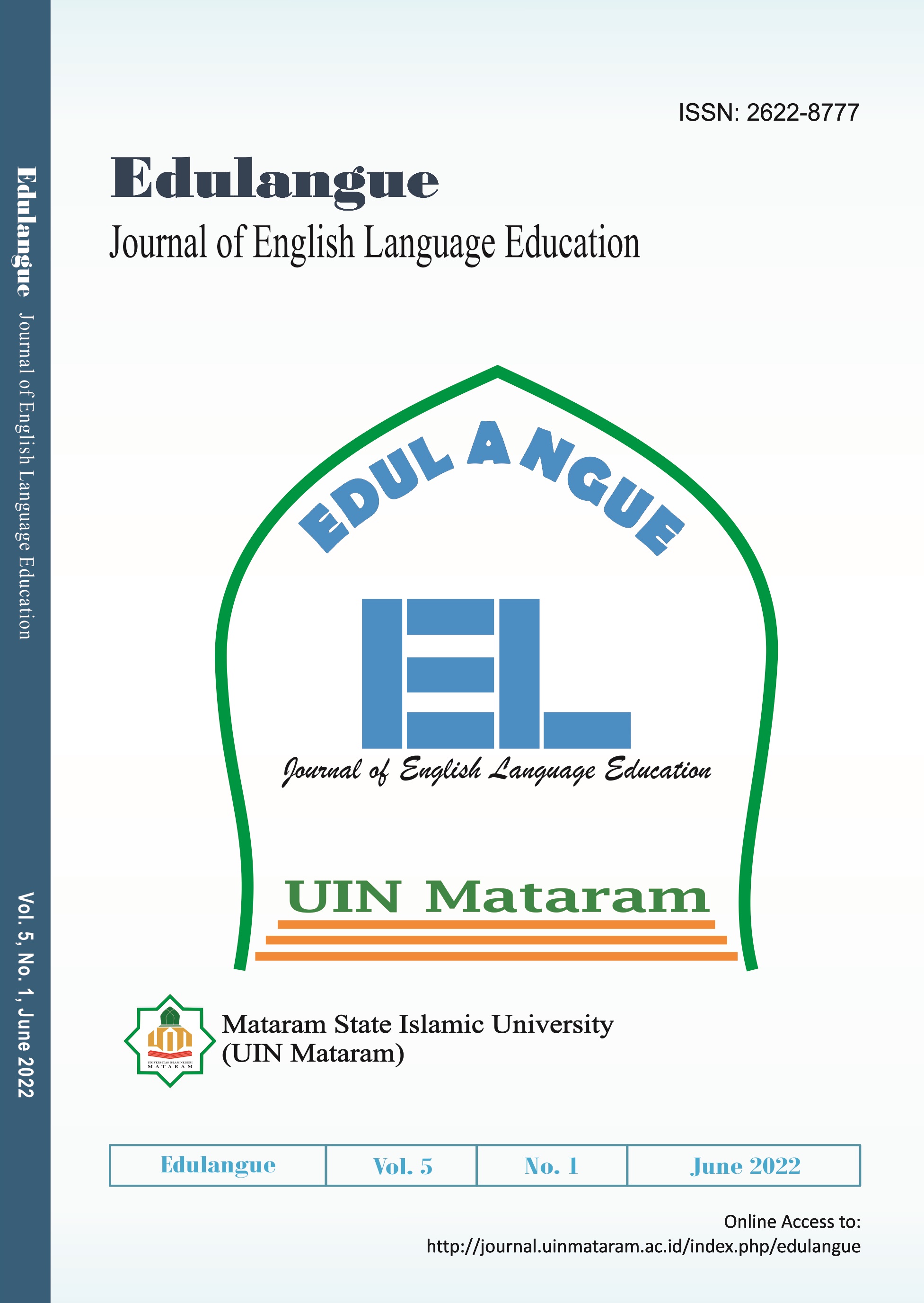Bringing Race to the Classroom: How a Multilingual Speaker Performs Infra Politics to Confront Raciolinguistic Ideologies
DOI:
https://doi.org/10.20414/edulangue.v5i1.5084Keywords:
(anti) racism, language education, monolingualism, raciolinguistic ideologies, racialized subjects, infra politicsAbstract
The notion of (anti) racism in applied linguistics in general and in language education in particular has gained considerable attention by scholars in the fields. Contesting the dominance of monolingualism in language education, applied linguists and language education scholars have become eager to resuscitate this notion, often implicitly averring that racism has long been insidiously penetrating in the field and surreptitiously operating under the so-called raciolinguistic ideologies. It is these ideologies that are alleged to perpetuate, and even to further the hegemony of White supremacy and empire, eventually giving rise to racial inequalities and racial hierarchies in language education. The antiracism movement, it has been asserted, needs to be enacted. This article will argue that the fervent pronouncements of raciolinguistic ideologies need to be taken seriously, so as to promote linguistic justice and linguistic equality in language education. It will first discuss the claims of raciolinguistic ideologies, and then provide examples (from a classroom practice) of how the so-called “racialized subjects” enact their quiescent capacity as social and political being in subverting identities in the perceived dominant language (i.e. English) as a way of doing infra politics –an instance of grassroots politics. In so doing, the article argues that the racialized subjects are not submissive language users, but are actively engaged themselves in resisting raciolinguistic ideologies
Downloads
References
Canagarajah, S. (1999). Resisting Linguistic Imperialism in English Teaching. Oxford: Oxford University Press.
Canagarajah, S. (2004). ‘Subversive identities, pedagogical safe houses, and critical learning,’ in B. Norton and K. Toohey (Eds.): Critical Pedagogies and Language Learning (pp, 116-137.Cambridge: Cambridge University Press.
Flores, N. & Rosa. J. (2015). Undoing Appropriateness: Raciolinguistic Ideologies and Language Diversity in Education. Harvard Education Review, 85(2), 149–71.
García, O., Flores, N., Seltzer, K., Wei, L., Otheguy, R., & Rosa, J. (2021). Rejecting abyssal thinking in the language and education of racialized bilinguals: A manifesto. Critical Inquiry in Language Studies, 18(3), 203-228. // doi.org/ 10.1080/15427587.2021.1935957.
Kubota, R. (2015). Race and language learning in multicultural Canada: Toward critical antiracism, Journal of Multilingual and Multicultural Development 36: 3–12. https://doi.org/10.1080/01434632.2014.892497.
Kubota, R. (2020). Confronting Epistemological Racism, Decolonizing Scholarly Knowledge: Race and Gender in Applied Linguistics, Applied Linguistics, 41(5), 712-732. https://doi:10.1093/applin/amz033.
Kubota, R. & A. Lin, (Eds.). (2009). Race, Culture, and Identity in Second Language Education: Exploring Critically Engaged Practice. New York: Routledge.
Kumaravadivelu, B. (2014). The decolonial option in English teaching: Can the subaltern act?, TESOL Quarterly, 51 (1), 66-85. https://doi.org/10.1002/tesq.202.
Krishna, S. (2009). Globalization and postcolonialism: Hegemony and resistance in the twenty-first century. Plymouth, UK: Rowman & Littlefield Publishers, Inc.
Li, W. (2021). Translanguaging as a political stance. ELT Journal (online version). //doi.org/10.1093/elt/ccab083.
Motha, S. (2020). ‘Is an antiracist and decolonizing applied linguistics possible?,’ Annual Review of Applied Linguistics 40:128–133. https:// doi:10.1017/S0267190520000100.
Scott, J.C. (1990). Domination and the Art of Resistance. Ann Arbor, Michigan: Yale University Press.
Santos, B. S. de (2014). Epistemologies of the South: Justice against epistemicide. Routledge.
Downloads
Published
Issue
Section
License
Copyright (c) 2022 Setiono Sugiharto

This work is licensed under a Creative Commons Attribution-ShareAlike 4.0 International License.




